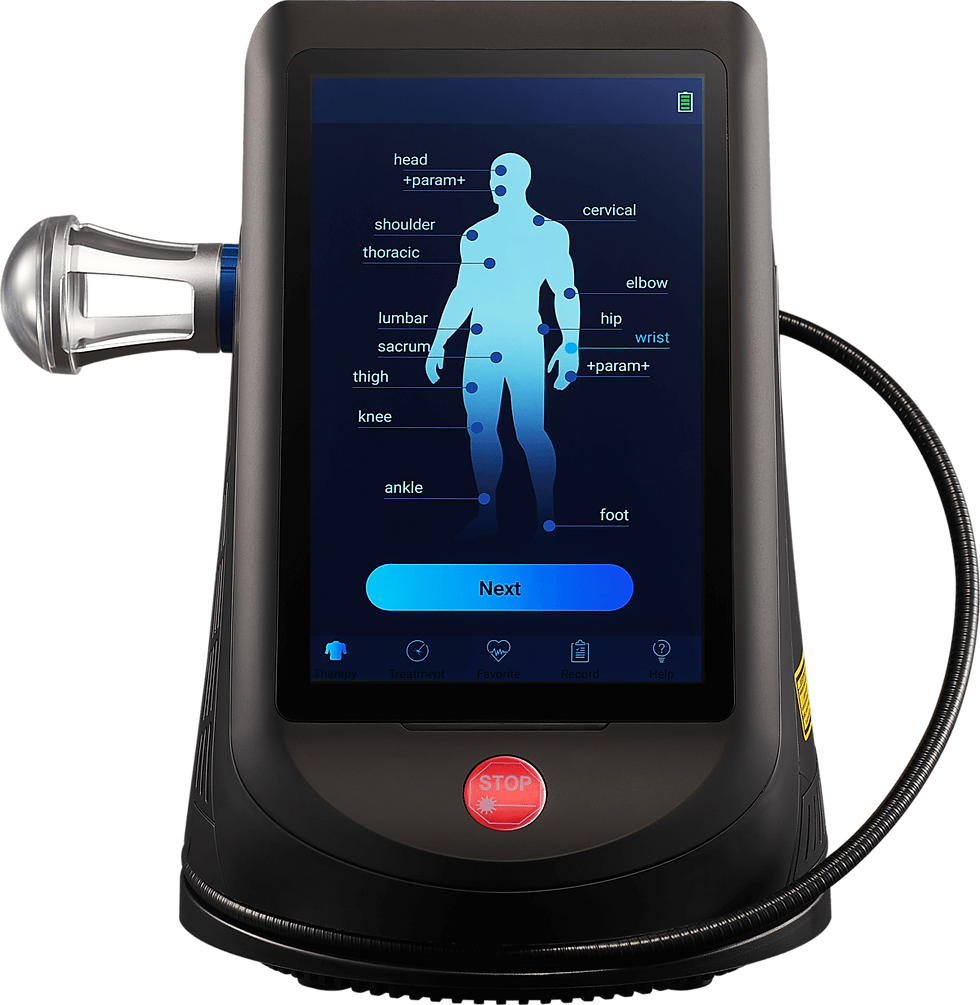Plantar Fasciitis During Pregnancy: Causes, Relief, and When to See a Podiatrist
- Jul 10, 2023
- 3 min read
Updated: Aug 30, 2025

Pregnancy can be a life-altering, beautiful, journey that causes many changes in a woman's body. Along with the joy that a new baby can bring, some women may also experience certain aches and pains during pregnancy in their feet. One of these pains can be heel pain from plantar fasciitis. At the end of this post, if you are pregnant or know someone who is, you will learn some takeaways on how to manage your plantar fasciitis symptoms.
Why Plantar Fasciitis is Common During Pregnancy

1. Sudden or excessive weight changes
Weight gain is part of a healthy pregnancy, but the sudden change in weight that comes along with pregnancy can increase the tension on the plantar fascia because it doesn't have time to adapt to these changes, which increases your risk of developing plantar fasciitis.
2. Hormonal changes
Relaxin, a type of hormone that relaxes tendons in ligaments to prepare a woman's body for birth, can also loosen ligaments in the feet, making your feet less stable while pregnant.
3.Fluid retention and swelling:
Many women experience swelling in the feet and ankles, which can make existing heel stress more noticeable.
Together, these factors create the perfect setup for plantar fasciitis to appear during pregnancy — even if you’ve never had heel pain before.
Symptoms to Watch For

Plantar fasciitis during pregnancy often shows up as:
Sharp, stabbing pain in the heel when you first step out of bed in the morning
Heel or arch pain after long periods of standing or walking
Achy, tired arches that worsen as the day goes on
Difficulty walking barefoot on hard floors
If you’re experiencing these, you may be dealing with plantar fasciitis.
Safe Relief Options During Pregnancy
The good news? There are pregnancy-safe ways to ease discomfort and protect your heels:
1. Choose supportive shoes:
Supportive shoes and shoes with enough cushion are key when managing plantar fasciitis.
These types of shoes include those with good arch support, shock absorption, and a wide toe box to also be able fit if your feet become swollen during pregnancy.
Avoid high heels, flip flops, and worn out shoes while trying to overcome plantar fasciitis as these shoe types will more than likely make your pain worse.
2. Shoe Inserts:
Orthotics or inserts specifically designed to help with plantar fasciitis can give you arch support and cushioning. This lowers the amount of strain on the plantar fascia. Talk to a local podiatrist or foot doctor in your area to find the best orthotic for your foot type and needs.

3. Stretching:
Regular stretching exercises are crucial to getting rid of plantar fasciitis. Use a towel stretch or roll your foot over a tennis ball for a minute or two — safe and effective during pregnancy.
4. Ice and Massage:
Place ice on the heel for 15-20 minutes several times a day to help with inflammation and relieve pain.
Massaging the foot with a golf ball, tennis ball, or a frozen water bottle can also help loosen up specific pain points on the sole of your foot
5. Weight Management:
Maintaining a healthy weight during pregnancy can help lower the amount of tension on your plantar fascia
A balanced diet and regular exercises recommended by your doctor or midwife can make weight management during pregnancy much easier.
6.Activity adjustments:
Stick to lower-impact activities like walking or swimming, rather than running or high-intensity workouts, until symptoms improve.
What to Avoid

Some common plantar fasciitis treatments aren’t recommended during pregnancy. Avoid:
Long high-impact exercise without proper footwear or support.
Going barefoot on hard surfaces like tile or wood floors.
Overusing pain medication — some medications aren’t safe during pregnancy unless prescribed or approved by your OB provider.
When to See a Podiatrist

Most pregnancy-related plantar fasciitis improves with supportive care, but sometimes extra help is needed. Consider scheduling a podiatry visit if:
Your heel pain lasts more than 2 weeks despite at-home care
Walking or standing has become very difficult
The pain is worsening instead of improving
At Direct Podiatry AZ, I focus on gentle, effective care. For pregnant patients, that often means customized footwear recommendations, orthotics, taping, and safe stretching routines. For women experiencing continued pain after they have given birth, advanced options like laser therapy or regenerative medicine injections can also be considered.
Final Thoughts

Heel pain doesn’t have to be part of your pregnancy journey. By making small adjustments and getting support when needed, you can stay comfortable and mobile throughout this special time..
Schedule Your Appointment at Direct Podiatry Arizona Today
Looking for a podiatrist in Phoenix to treat your plantar fasciitis during pregnancy? My name is Dr. Tarr, I am a board-certified foot doctor, and owner of Direct Podiatry Arizona in Tempe, AZ. To view available appointment times, click the link here.




Comments